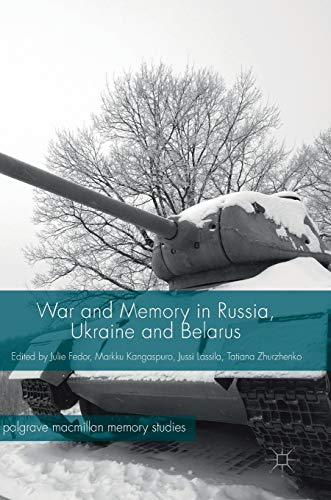
War and Memory in Russia, Ukraine and Belarus
by Julie Fedor
Popularity
0.53 / 5
* A book's popularity is determined by how it compares to all other books on this website.
Where to buy?
Buy from Amazon* If you buy this book through the link above, we may receive a small commission at no extra cost to you.
War and Memory in Russia, Ukraine and Belarus by Julie Fedor
Details
War:
World War II
Perspective:
Researcher
Biography:
No
Region:
Europe
Page Count:
506
Published Date:
2017
ISBN13:
9783319665221
Description
Main Themes and Topics
War and Memory in Russia, Ukraine and Belarus by Julie Fedor is an insightful exploration of the memory politics surrounding World War II in three significant post-Soviet Eastern European countries. The book delves into how the memories of the Great Patriotic War have been shaped, instrumentalized, and re-mythologized in Russia, Ukraine, and Belarus. It examines the persistence of Soviet commemorative culture in these regions, revealing how each country's geopolitical, cultural, and historical context leads to diverse political uses of World War II memories. This contributes to understanding the broader narrative of post-communist memory politics in Eastern Europe and highlights the ongoing influence of the war myth on contemporary developments in these societies.
Writing Style and Tone
The writing style of this edited collection is academic yet accessible, aiming to engage readers who have an interest in Eastern European history, memory studies, and political science. The tone is analytical, providing in-depth examinations of complex issues while maintaining clarity through well-structured arguments. Julie Fedor and the contributing authors present their research with precision, offering substantial evidence and meticulously crafted narratives that guide readers through the intricate landscape of memory politics in the post-Soviet space.
Brief Summary
This book provides a comprehensive overview of the post-communist memory politics in Russia, Ukraine, and Belarus, specifically pertaining to World War II's legacy. It addresses the varying ways these countries continue to shape and utilize the memories of the war, examining the differences in commemorative cultures and political implications. Notable chapters such as ‘Introduction: War and Memory in Russia, Ukraine and Belarus’, ‘From the Trauma of Stalinism to the Triumph of Stalingrad: The Toponymic Dispute over Volgograd’, and ‘The “Partisan Republic”: Colonial Myths and Memory Wars in Belarus’ are highlighted for their open access availability, making them widely accessible for further exploration of these crucial topics.









